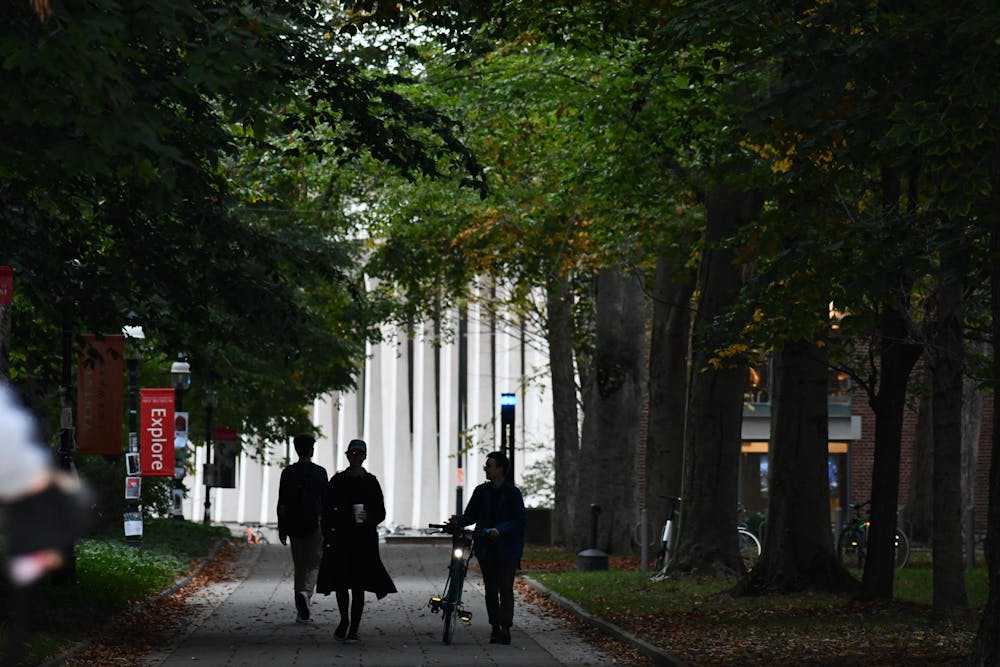Enrollment statistics for the first Princeton class admitted after the fall of affirmative action revealed mostly stable racial diversity — yet a significant increase in students marking their race as “unknown” at Princeton suggests that white and Asian American applicants may be omitting their race on college applications altogether.
While Hispanic/Latine enrollment saw a one-point drop between the Class of 2027 and the Class of 2028, and Black enrollment decreased by even less than that, the number of students who did not indicate their race increased by almost 6 percent. Experts told The Daily Princetonian that non-reporting students tend to be white and Asian American.
This could account for the 2.2 percent drop in Asian American student enrollment between the Class of 2027 and 2028.
In an analysis of applicant information from students applying to the University of California system, Assistant Professor of Economics Zachary Bleemer showed that non-reporters of race on applications tend to be students who are not underrepresented minorities.
“In short, the increase in ethnicity non-reporting after affirmative action bans is usually almost completely among white and Asian students, though that isn't to say that’s what’s going on at Princeton,” Bleemer wrote in an email to the ‘Prince.’
Bleemer specified that a student survey would be needed to verify if this is the case at Princeton.
On their applications, only 1.8 percent of the Class of 2027 did not indicate their race, according to University spokesperson Jennifer Morrill. The demographic breakdown of this year’s freshman class, however, showed that 7.7 percent of the Class of 2028 left their race unmarked.
The apparent drop in Asian American enrollment prompted Students for Fair Admissions, the group that sued Harvard to bring an end to race-conscious affirmative action, to send letters to Princeton, Yale, and Duke — which all saw declines in Asian American enrollment. The group questioned whether the three universities complied with the Supreme Court’s guidelines, claiming that the demographic breakdowns of their incoming classes “are not possible under true neutrality.”

Yet Brian Taylor, managing partner at admissions consulting firm Ivy Coach, doesn’t believe that Asian American enrollment has truly dipped since the fall of affirmative action. “It’s just that fewer students are filling out that ethnicity box on the common app,” he said.
Surprised to see a question asking applicants to indicate their race on applications, and nervous they may “face discrimination if they check Asian in that box,” Taylor said many Asian American applicants are opting to simply not indicate their race. Taylor even said he believes some Asian American students are being advised by their support systems to leave their race blank.
“Therein lies your mother load of missing Asian American students,” Taylor said.
The University has repeatedly indicated their commitment to maintaining diversity at Princeton in spite of the Supreme Court’s ban on affirmative action. In anticipation of the decision in 2023, University President Christopher Eisgruber ’83 told The Philadelphia Inquirer, “We’re going to be as creative as we can within the boundaries of the law.”

In an email statement to the ‘Prince’ regarding how enrollment managed to remain stable, Morrill wrote, “At Princeton, we are adhering to the limits set by the ruling and continuing to use a holistic admission process that involves a highly individualized assessment of the applicant's talents, achievements and his or her potential to contribute to learning at Princeton.”
While some have suggested that universities would rely on applicants’ zip codes and other indicators of background in lieu of considering race, Bleemer told the ‘Prince’ that there is no concrete evidence of this.
“We have evidence that public universities impacted by affirmative action bans sometimes provide admissions advantages to students from disadvantaged high schools, but no clear evidence on zip codes,” he wrote.
Taylor said he believes Princeton and other universities are “capitalizing” on the essay question about lived experience, allowing students to elaborate on their background. But he also said it’s even simpler than that — admissions officers can glean a student’s background from their name or from where their parents are from.
As a result, Taylor suggested that this “race unknown” category is skewing enrollment information. “I wouldn’t be surprised if Asian American enrollment increased this year,” he told the ‘Prince.’
Isabel Yip is a senior News writer for the ‘Prince.’
Please send any corrections to corrections[at]dailyprincetonian.com.








